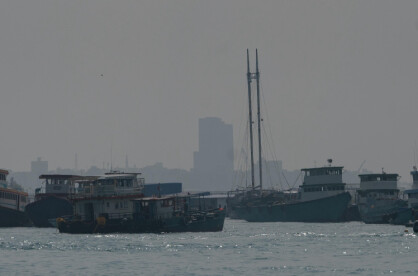President Dr Mohamed Muizzu has ratified the Urban Planning and Management Act (Act No. 15/2024), ushering in a transformative framework for land development in the Maldives. Passed by Parliament on August 22, 2024, the Act aims to ensure sustainable infrastructure planning that maximizes the economic and social benefits derived from land use, aligning with the decentralization objectives of the government.
The Act mandates the development of laws and regulations that guide infrastructure planning, enhancing efficiency and accountability across multiple levels of government and private sectors. It highlights the central role of urban planning in shaping not only the physical landscape of the country but also its economic trajectory.
The Bill designates several key government agencies responsible for drafting, implementing, and overseeing urban development plans. These include:
- Ministry of Housing, Land, and Urban Development
- City Councils
- Island Councils
- Agencies tasked with developing urban areas, industrial areas, and special economic zones
The involvement of various stakeholders ensures a multi-faceted approach to urban development, with the President, advised by the Cabinet, guiding the national policy on infrastructure planning.
Under the new law, land development is only permitted after obtaining approval in line with the Bill's provisions. All development projects must adhere to established standards and regulations, ensuring compliance across different sectors. With the Act officially published in the Government Gazette, it will take effect six months from ratification, giving stakeholders time to adapt to its requirements.
The ratification has brought up some concerns, especially as the Maldivians call to move away from centralisation to establish a decentralized system that will allow islands to expand without the bureaucratic involvement of the capital city. A centralized decision-making process, despite involving local councils, may slow down smaller island projects that require immediate attention. The need to obtain land development permits could delay essential infrastructure improvements, especially for islands facing urgent housing shortages or environmental threats like coastal erosion.0
However, it is being noted that centralizing infrastructure planning and mandating aligns with the government’s decentralization goals as the local councils will gain greater authority over their development projects. This could lead to more tailored solutions for island-specific needs, such as sustainable housing, waste management systems, and eco-friendly transport networks.
While the bill and amendments to the bill present opportunities for positive change, particularly in urban and island communities, it also brings challenges that will require careful management. As the Act comes into effect, its success will depend on how well government agencies, local councils, and private stakeholders collaborate to achieve its goals.







